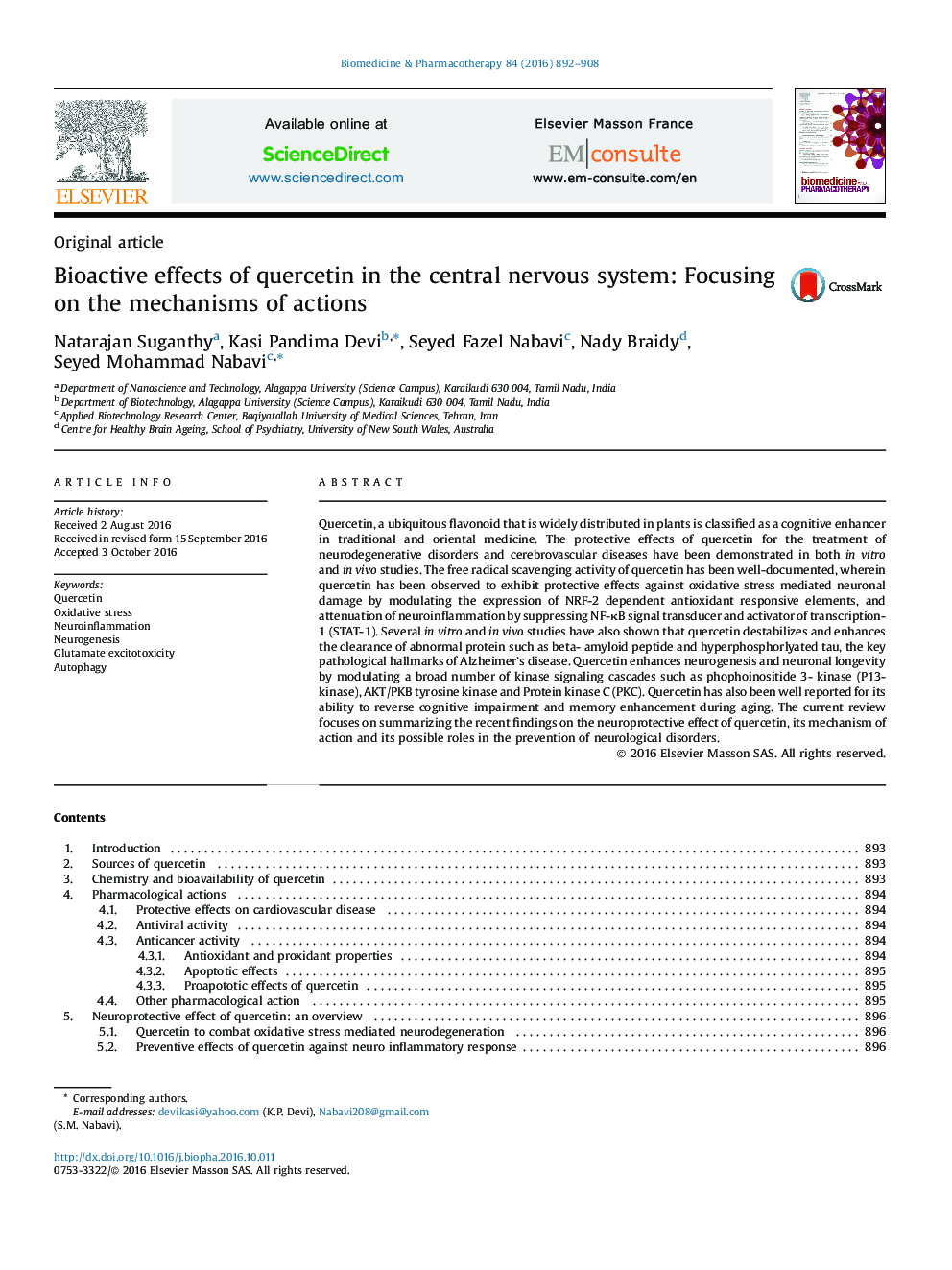| کد مقاله | کد نشریه | سال انتشار | مقاله انگلیسی | نسخه تمام متن |
|---|---|---|---|---|
| 5553319 | 1557958 | 2016 | 17 صفحه PDF | دانلود رایگان |
Quercetin, a ubiquitous flavonoid that is widely distributed in plants is classified as a cognitive enhancer in traditional and oriental medicine. The protective effects of quercetin for the treatment of neurodegenerative disorders and cerebrovascular diseases have been demonstrated in both in vitro and in vivo studies. The free radical scavenging activity of quercetin has been well-documented, wherein quercetin has been observed to exhibit protective effects against oxidative stress mediated neuronal damage by modulating the expression of NRF-2 dependent antioxidant responsive elements, and attenuation of neuroinflammation by suppressing NF-κB signal transducer and activator of transcription-1 (STAT-1). Several in vitro and in vivo studies have also shown that quercetin destabilizes and enhances the clearance of abnormal protein such as beta- amyloid peptide and hyperphosphorlyated tau, the key pathological hallmarks of Alzheimer's disease. Quercetin enhances neurogenesis and neuronal longevity by modulating a broad number of kinase signaling cascades such as phophoinositide 3- kinase (P13-kinase), AKT/PKB tyrosine kinase and Protein kinase C (PKC). Quercetin has also been well reported for its ability to reverse cognitive impairment and memory enhancement during aging. The current review focuses on summarizing the recent findings on the neuroprotective effect of quercetin, its mechanism of action and its possible roles in the prevention of neurological disorders.
Journal: Biomedicine & Pharmacotherapy - Volume 84, December 2016, Pages 892-908
